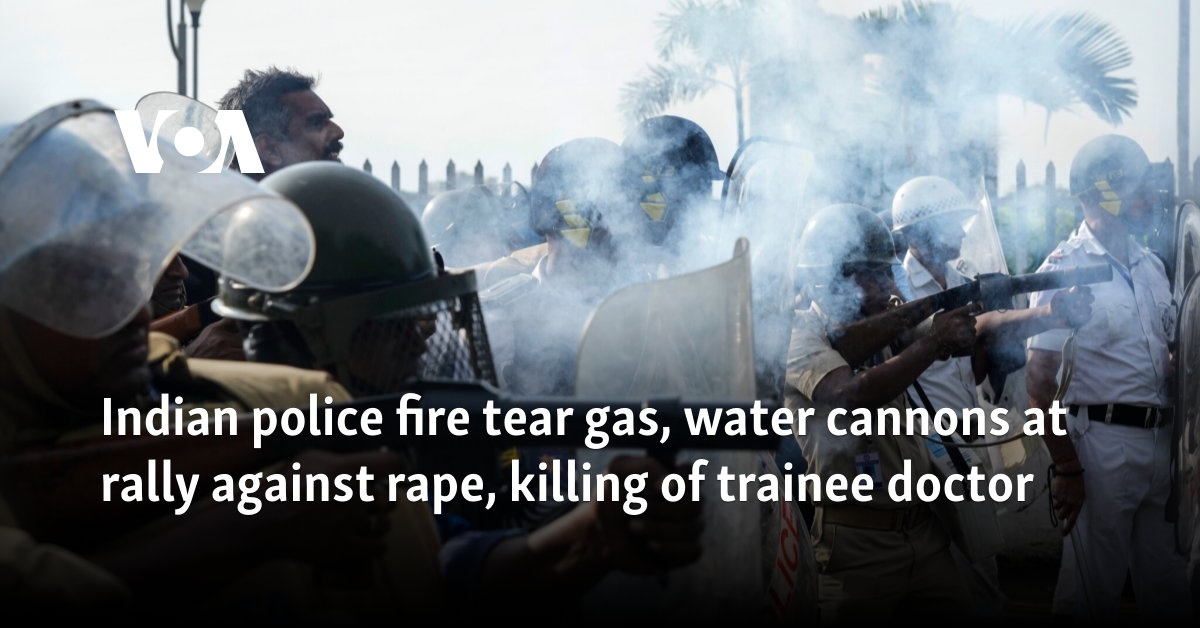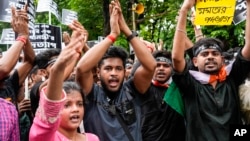In India, police used tear gas and water cannon to disperse thousands of protesters demanding the resignation of a senior official in the east of the country, accused of mishandling the investigation into the rape and killing of a junior doctor earlier this month.
The killing of the 31-year-old doctor on August 9 while on duty at the RG Kar Medical College and Hospital in Kolkata sparked protests across India, focusing on the chronic problem of violence against women in the country. Kolkata is the capital of the state of West Bengal.
Protesters say the attack shows the vulnerability of medical staff in hospitals across India.
Protesters from Prime Minister Narendra Modi’s Hindu nationalist Bharatiya Janata Party attempted to break through the police cordon and march to the office of Mamta Banerjee, whose Trinamool Congress party governs the state of West Bengal, demanding her resignation.
Modi’s party is the largest opposition party in West Bengal. The police had banned their rally and blocked the streets.
Police armed with batons pushed back the protesters and used tear gas and water cannon. Four student activists were arrested ahead of the rally, police said, accusing them of trying to stage large-scale violence.
India’s top court last week set up a national task force of doctors to make recommendations on workplace safety for health workers. The Supreme Court said the panel would come up with guidelines to protect medical and health workers across the country.
An autopsy of the slain doctor later confirmed sexual abuse, and a volunteer police officer was arrested in connection with the crime. The victim’s family claimed it was a gang rape and that other people were involved.
In the days that followed, the growing anger boiled over into nationwide outrage, sparking protests against violence against women. The protests also led to thousands of doctors and paramedics in some public hospitals across India walking out of work, demanding a safer working environment. The strikes affected thousands of patients across India.
Despite strict laws introduced following the gang rape and murder of a 23-year-old student on a moving bus in Delhi in 2012, women in India continue to face increasing levels of violence.
This attack prompted lawmakers to impose harsher punishments for such crimes and set up fast-track courts for rape cases. The government also introduced the death penalty for repeat offenders.


